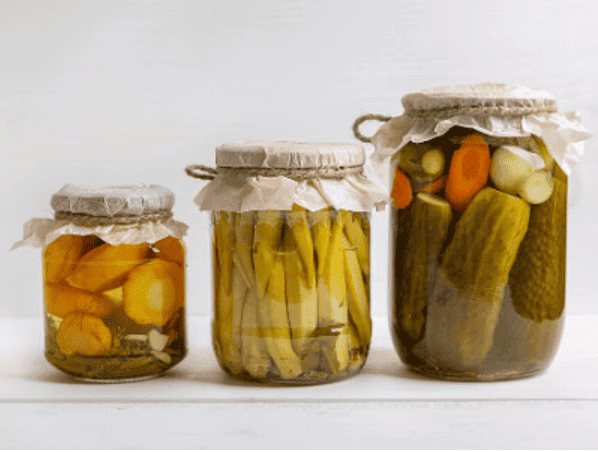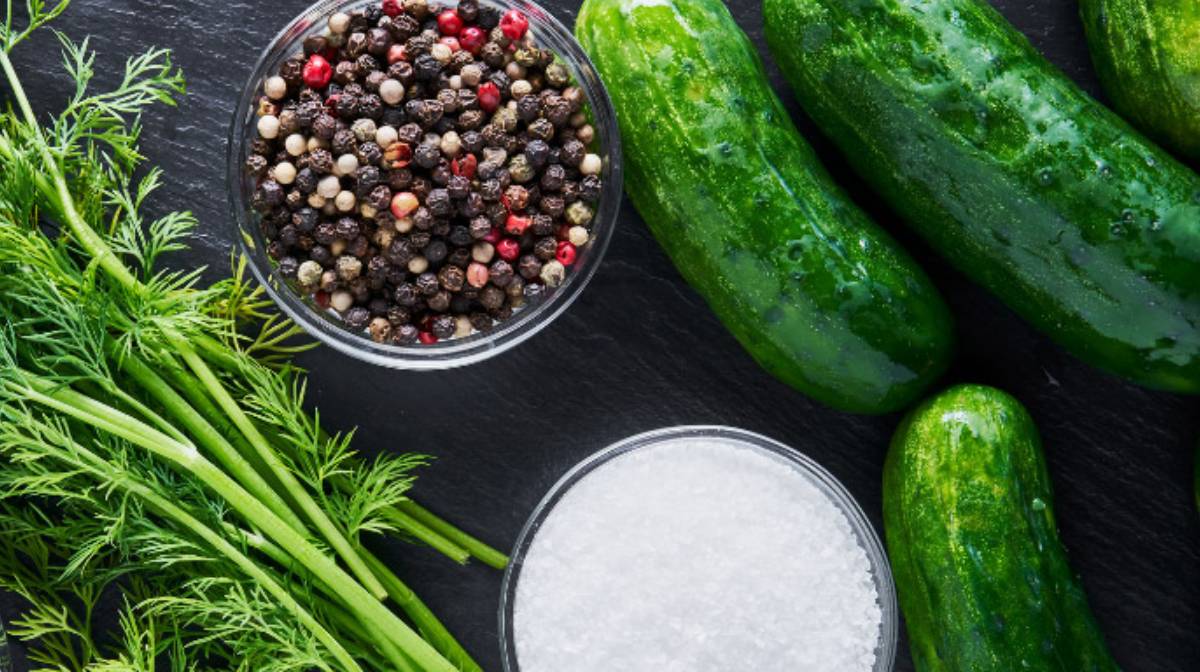Fermented foods contain high amounts of beneficial bacteria – the same kinds of bacteria that live and thrive in the human gut. Kimchi, sauerkraut, miso, tempeh and the humble pickle are all packed full of these good gut microbes.
Pickles as a probiotic: Are they the best gut food for your digestive system?Probiotics are beneficial types of bacteria that are added to the diet or taken as a supplement to try and boost the number of good gut bugs in the colon. Fermented vegetables that are rich in beneficial bacteria are, in effect, probiotics – eating them can boost the population numbers of good gut bacteria to outnumber the potentially “bad” or harmful kinds. In fact, a well-fermented pickle will contain millions more beneficial bacteria than a probiotic supplement! By improving the number and function of the good bacteria in the gut, probiotics can have a positive impact on your health from supporting your immune system and skin health, to helping with mood and cognition1,2.
Fermentation is a natural process of food preparation used by humans for hundreds of years. By creating an environment that supports the beneficial bacteria naturally found in foods, we can encourage these microbes to break down the starches and sugars in the food. This feeds the good bacteria (which then multiply), partially digests the food, changes the pH of the food, starves out the potentially bad bacteria, and prevents the food from spoiling. Magic! Fermented pickles are produced by these beneficial bacteria acting on the flesh of cucumbers. However, there is another method of preparing pickles that don't result in bacterial growth – pickling.

Fermented pickles have clear benefits – the process of suspending cucumbers in brine creates the ideal environment for good bacteria to thrive. They become probiotics, and these good microbes are transferred to your gastrointestinal tract when you eat fermented pickles. Pickles are generally produced through the addition of vinegar rather than brine. Where bacteria do all the work of digesting the cucumbers in the fermentation process, vinegar breaks down the starches and sugars in pickling. Pickling produces a similar “zing”-y taste to fermentation but doesn't create an environment where beneficial bacteria (or any bacteria) can thrive. Instead, it kills off most bacteria in the cucumber, resulting in very little benefit to your health. However, some raw, unpasteurised vinegars (like apple cider vinegar) contain their own types of good gut bugs – but it's rare to find pickles prepared with these types of vinegars in supermarkets.
Can pickles help with my digestion? Fermented pickles help digestion in several ways:- Not only are pickles good for gut bacteria, but the fermentation process unlocks more nutrients by partially digesting the pickle – this allows your body to absorb more nutrition with less physical effort on your part, allowing the gut to get some much-needed rest. Pickles are also high in particular types of fibre that feed beneficial gut bacteria, acting as prebiotics – food for the probiotic gut bacteria.
- Studies have shown that adding fermented vegetables to your diet may help with digestion and manage symptoms of constipation and diarrhoea3. Rumour has it that drinking “pickle juice” (the brine used to ferment the pickles in) can help with managing symptoms of heartburn and reflux, but there haven't been any studies confirming this yet.
- Fermented foods like pickles are basically probiotic superfoods, packed full of good bacteria that can support the health of your gastrointestinal microbiome and are good for your gut bacteria. Be sure to go for fermented pickles rather than vinegar-pickled.








